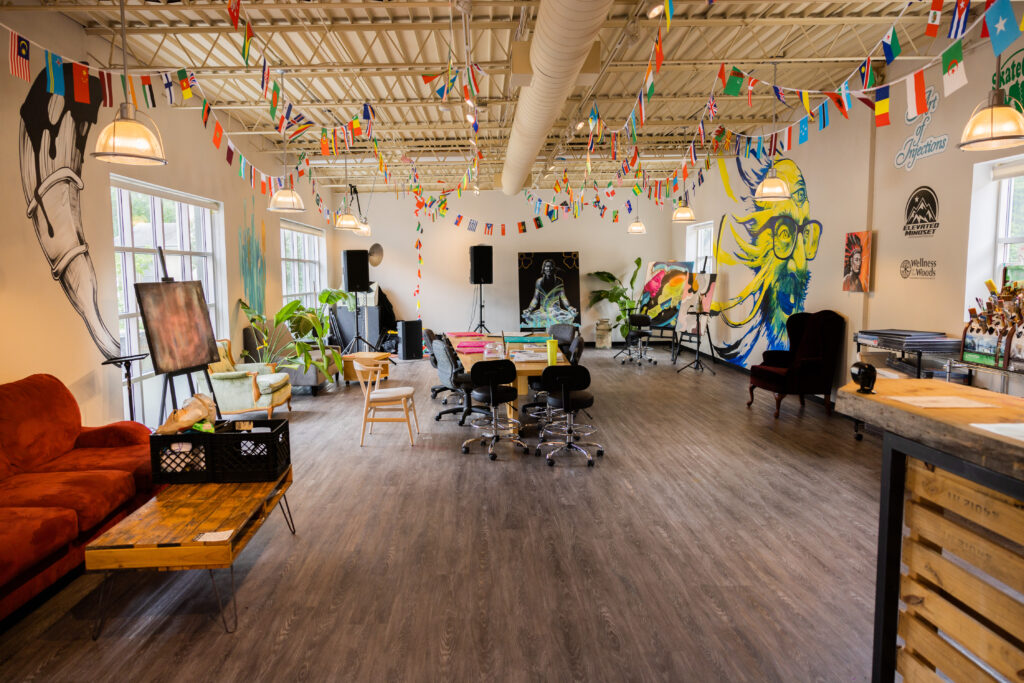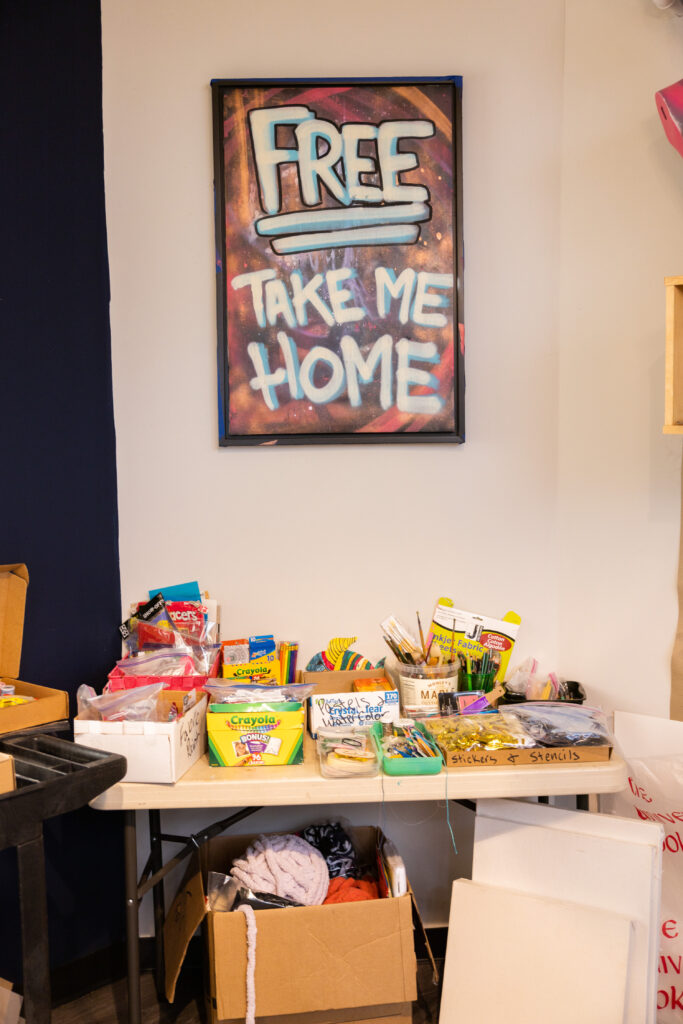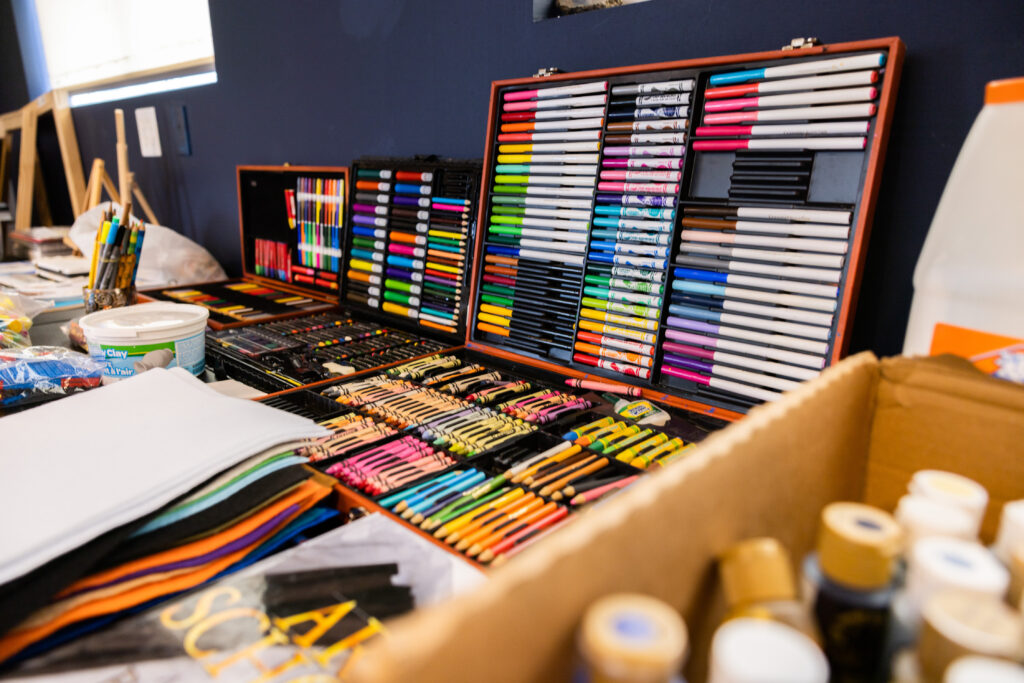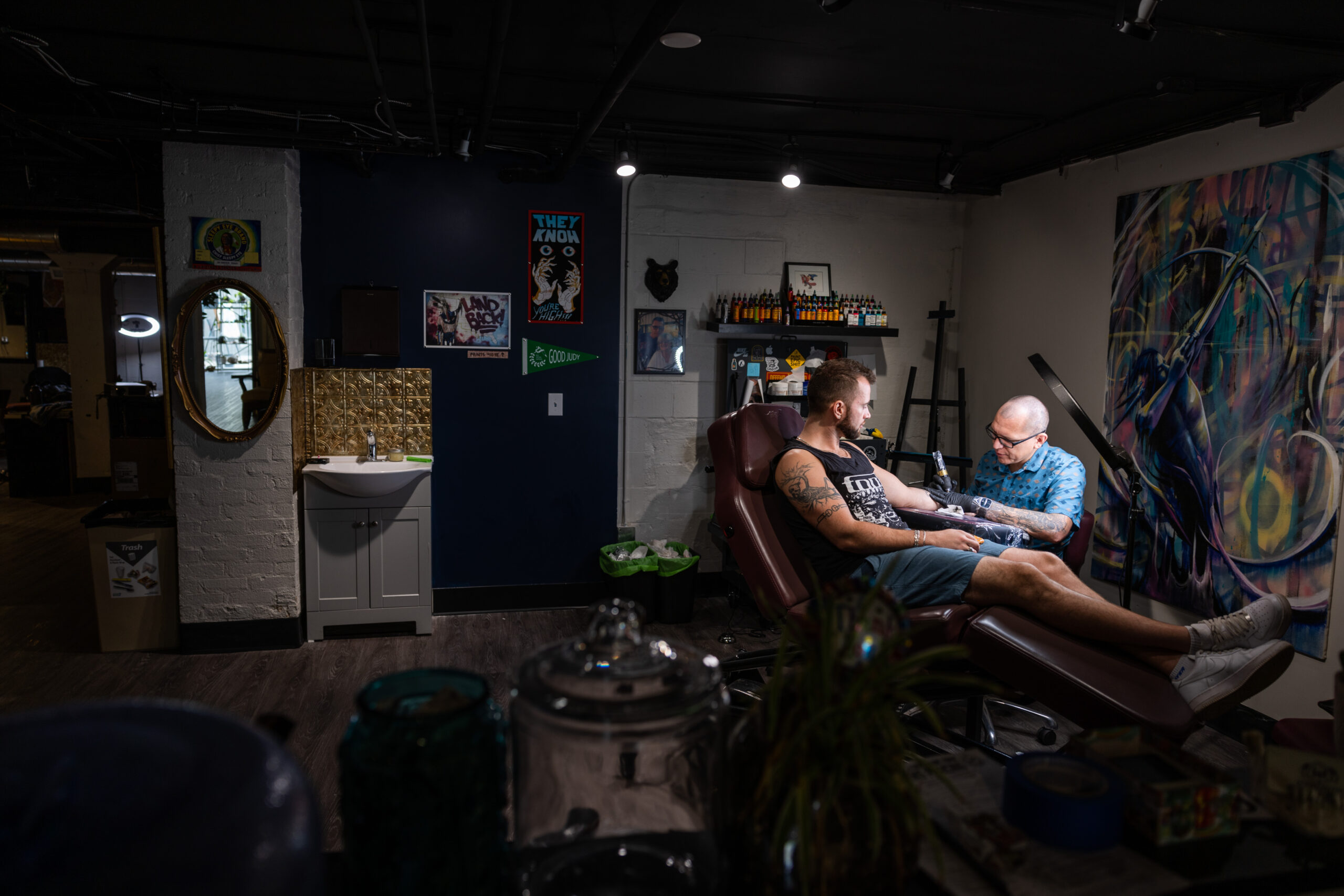Willard Malebear Jr., tattoo artist and owner of Iktomi Tattoo in Minneapolis, Minnesota, was born in South Minneapolis and spent a large portion of his childhood in Idaho Falls, Idaho. “From my earliest memories, I have been deeply engaged in drawing, illustrating, and painting. This lifelong passion for art only grew stronger after my move to Minneapolis, where I became immersed in the vibrant inner-city art scene,” he says.
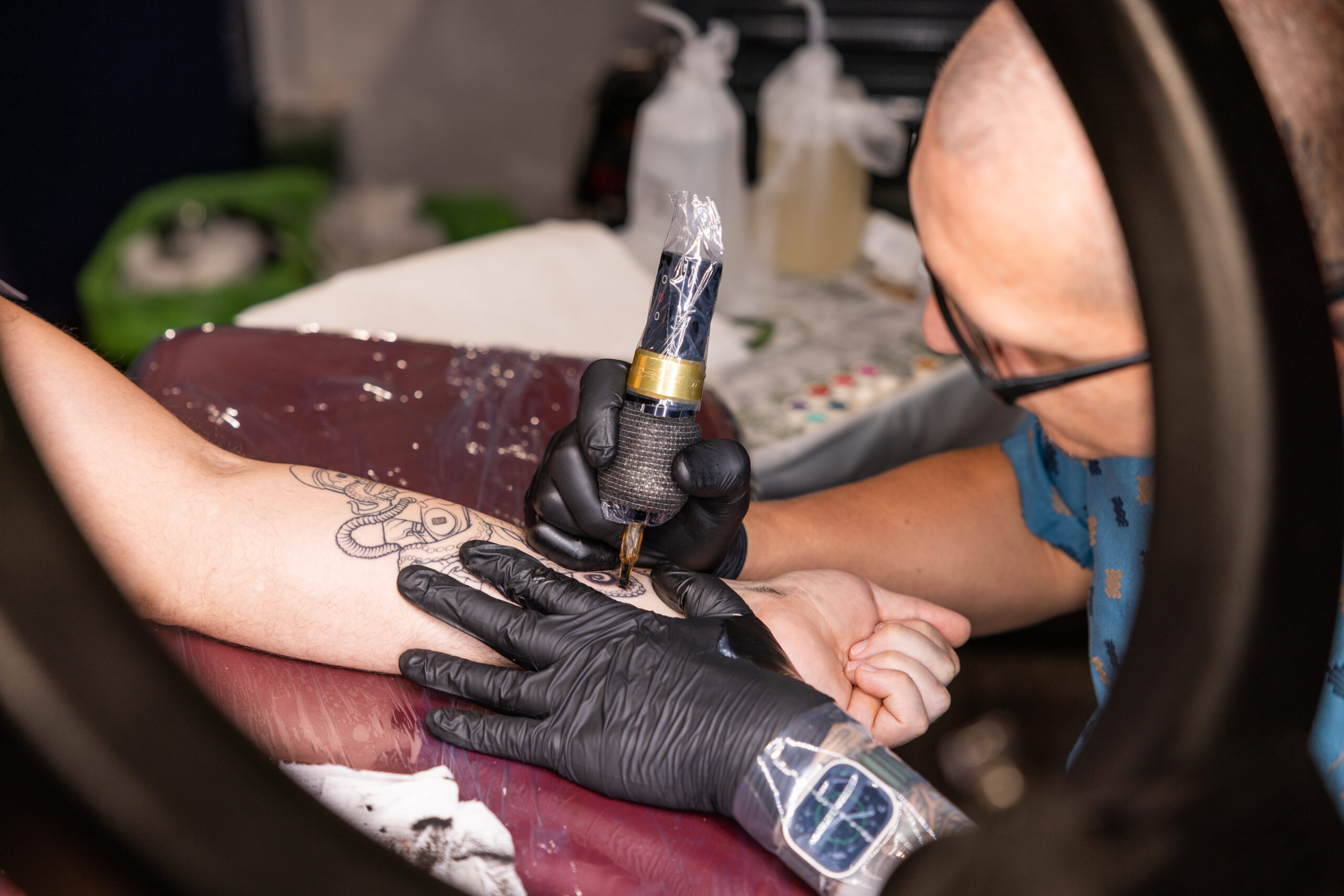
Through struggles with substance abuse, he maintained a connection to skateboarding and art, two of his biggest passions during childhood and his early 20s. Over the next 10 years, Malebear’s struggles led him to serve two separate prison sentences. “As an artist and illustrator who didn’t follow a conventional educational path through high school or college, pursuing a career in tattooing seemed not only logical but also deeply inspiring,” he shares.
WILLARD MALEBEAR JR.“It [tattooing] offered a way to blend my artistic skills with a profession that values creativity and individual expression.”
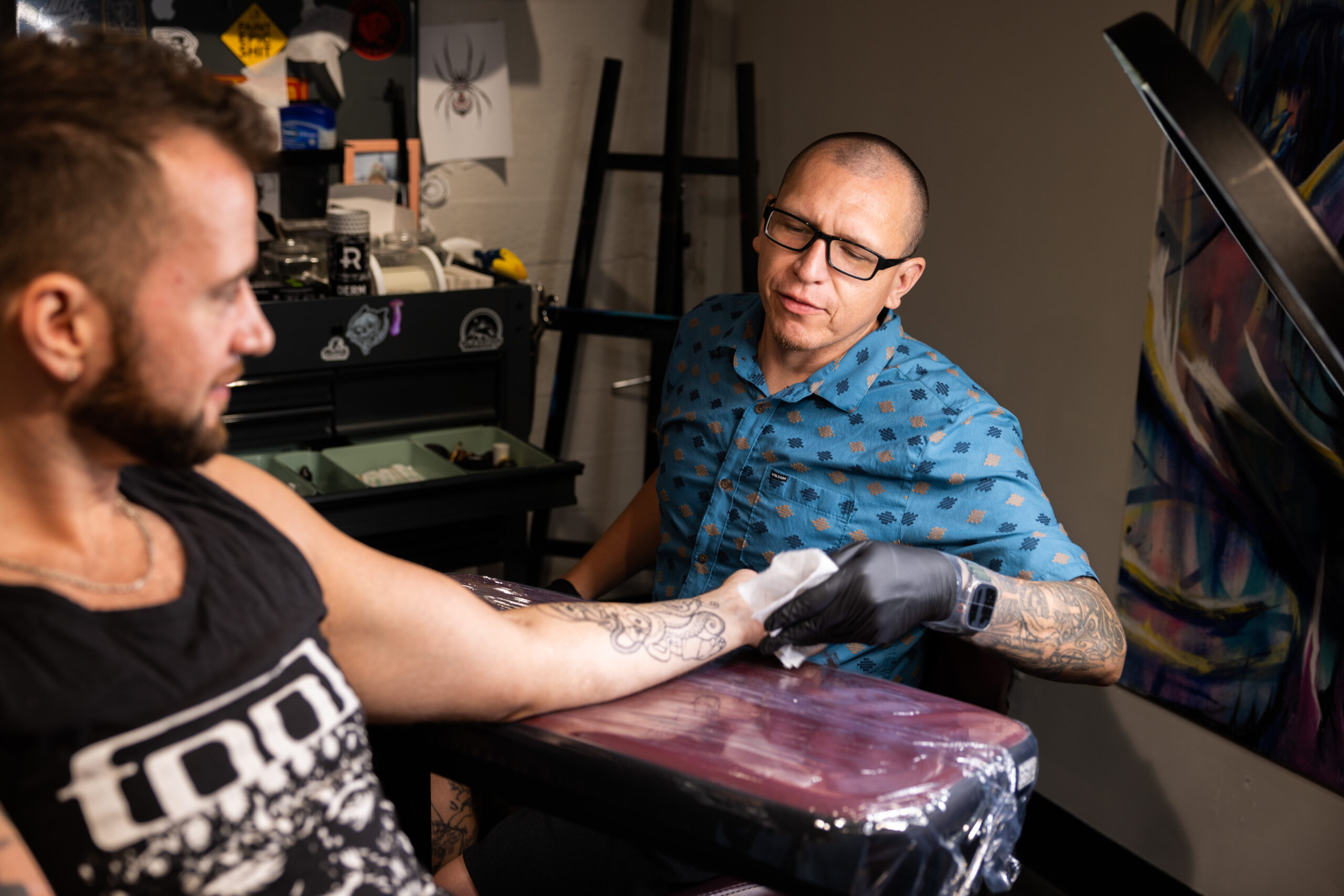
After his prison sentences, Malebear began his journey with sobriety. Along with this, he’s reconnected with his L̇ak̄ot̄a culture. “As I learn more about my Huƞk̄ṗapa Lak̇ot̄a heritage, I am filled with pride and a renewed sense of purpose. I am committed to being present and engaged in my children’s lives and embracing my culture fully as part of my ongoing journey,” says the artist. During this time, he also rekindled and grew his love for the art of tattooing. This was the foundation that led to the beginning of Iktomi Tattoo.
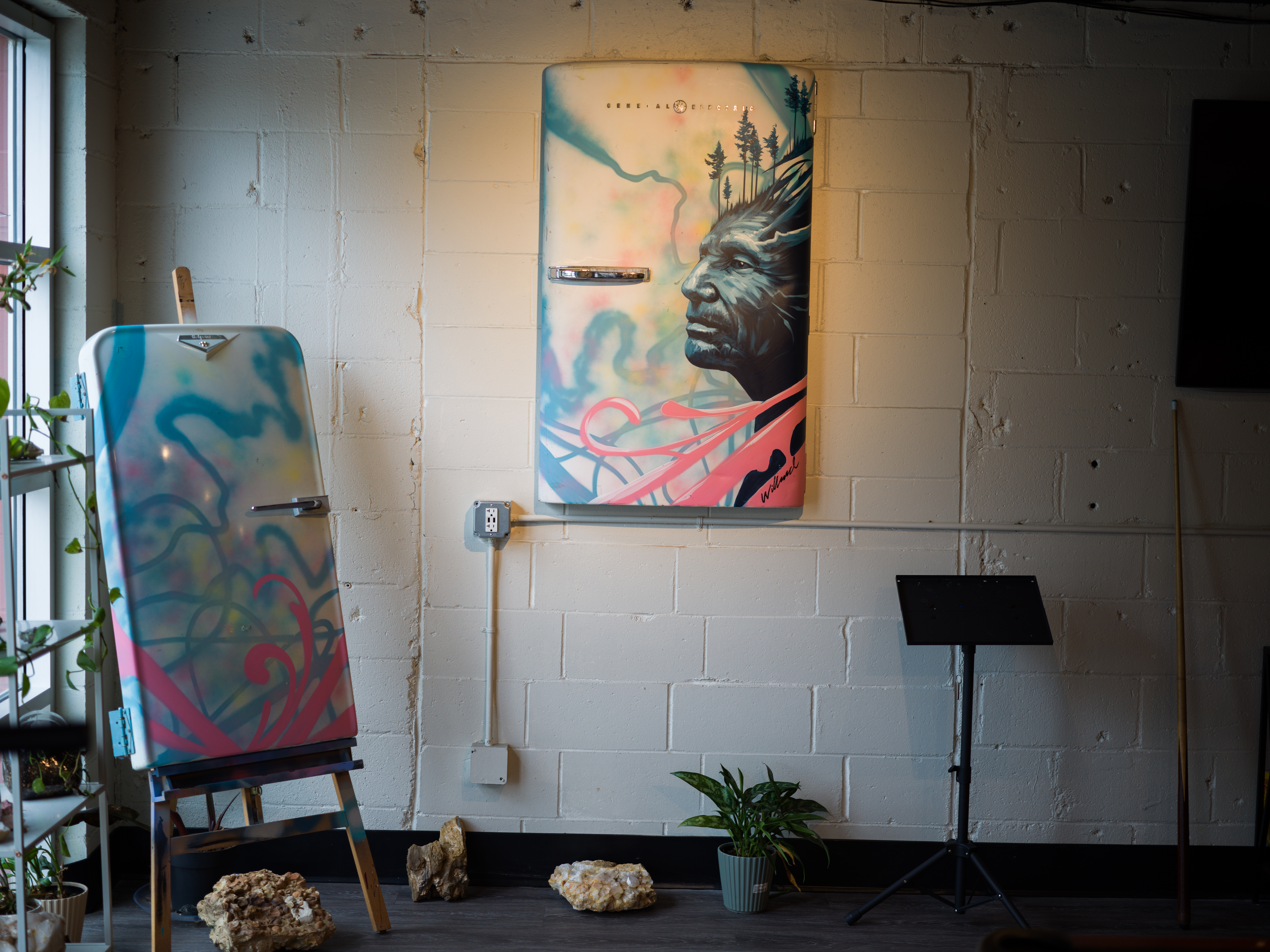
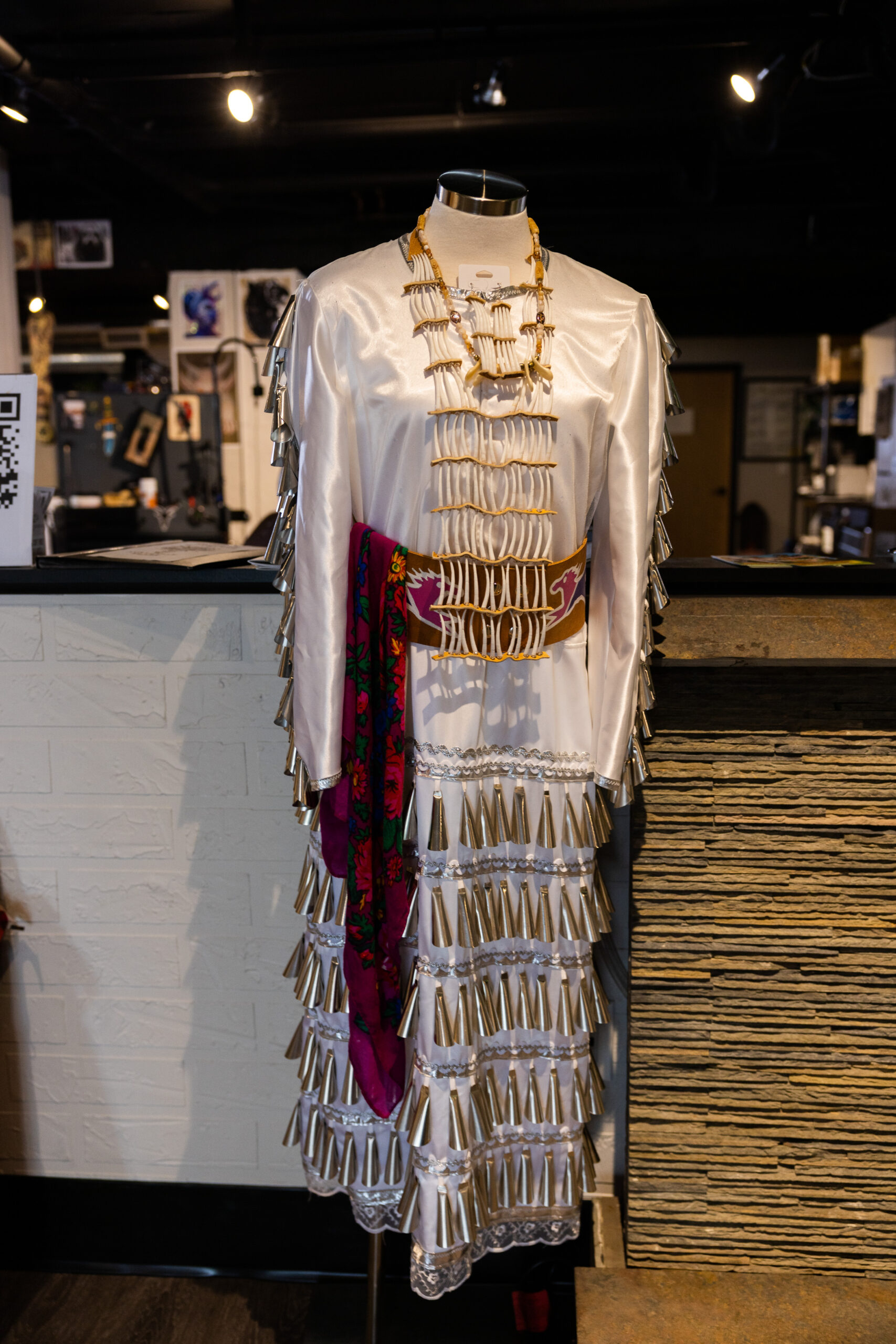
Malebear shares that having an Indigenous-owned tattoo shop in Minneapolis is vital. “It not only allows for the support and promotion of Native artists but also reinforces the visibility and influence of Indigenous business owners within the community,” he says. The shop has three other Indigenous artists.
“As a custom tattoo artist … It’s particularly rewarding when Indigenous community members approach me for culturally-themed tattoos. While they may not always be specifically Lakota, the opportunity to connect with fellow Native individuals through my work is profoundly gratifying,” says Malebear. From the first tattoo he received that featured a skull when he was 18, to the first tattoo he gave himself (his mother’s name on his chest) to now owning his own tattoo shop, Malebear speaks humbly of his journey.
Malebear is now turning his attention to the community with a new non-profit initiative called Art Shelf. With their goal of “feeding creative minds,” they are looking to fill the gap of accessibility to create art for individuals and families in the Minneapolis area—from providing art supplies to having a free community art center and studio space.
